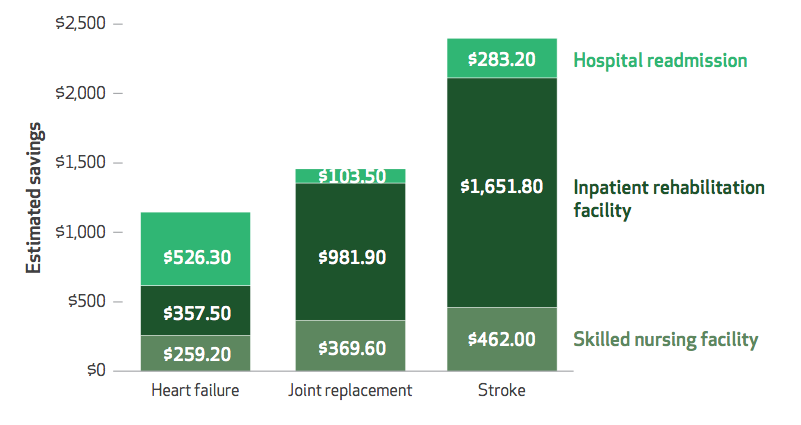Peter J. Huckfeldt, Jose J. Escarce, Brendan Rabideau, Pinar Karaca-Mandic, and Neeraj Sood find that Medicare Advantage (MA) enrollees receive less intense postacute care and experience better outcomes than Medicare Fee for Service (FFS) beneficiaries during care for lower extremity joint replacement, stroke, and heart failure. Averaged across the three conditions, the authors estimate that FFS costs would be reduced 16 percent per episode if the levels of postacute care provided by MA were carried over to FFS. In the case of joint replacement, only 3.7 percent of MA patients were admitted to inpatient rehabilitation facilities, compared to 11.0 percent of FFS patients, while MA patients were 0.8 percentages points less likely than FFS patients to be readmitted to the hospital within 90 days post-discharge. These findings help explain how MA plans are able to achieve lower costs than FFS and lend evidence to the potential of “bundled payments” to lower costs in FFS without adversely impacting quality of care.
The full study is available at Health Affairs. The press release for the study can be found here.
Citation: Huckfeldt, P. J., Escarce, J. J., Rabideau, B., Karaca-Mandic, P., & Sood, N. (2017). Less intense postacute care, better outcomes for enrollees in Medicare Advantage than those in fee-for-service. Health Affairs, 36(1), 91-100.
